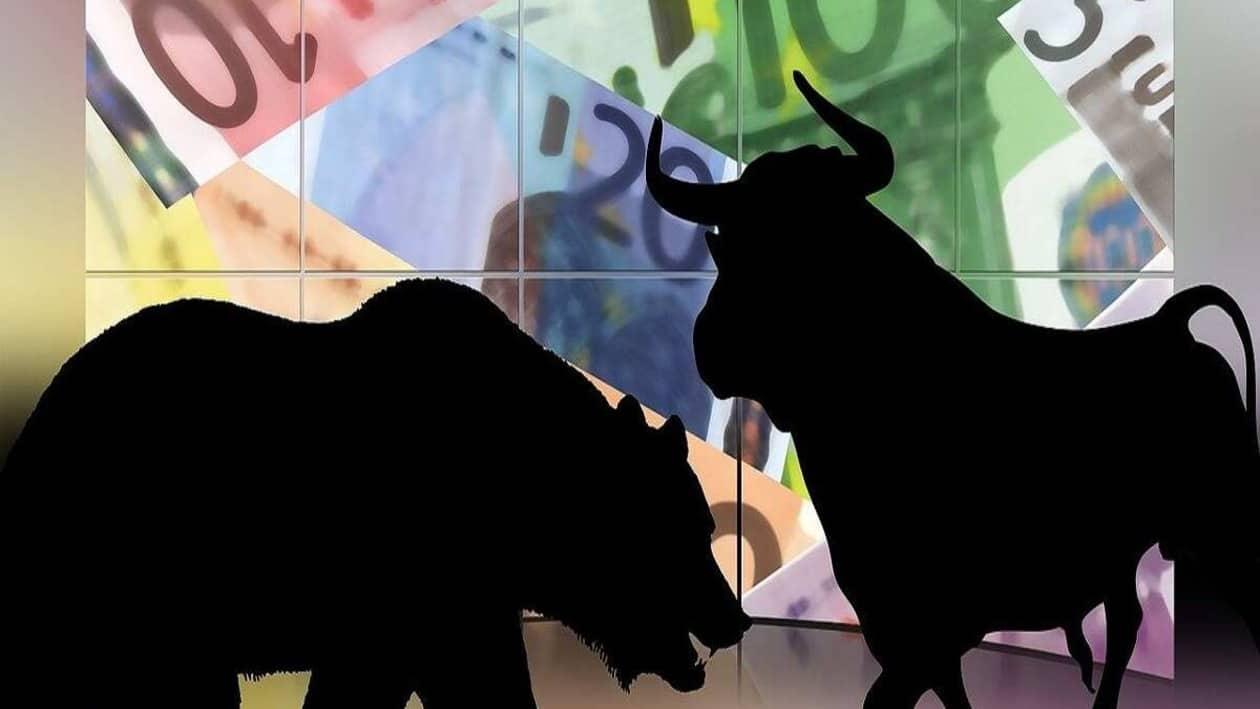The domestic market has been highly volatile this year so far. Concerns over sticky inflation, rate hikes and recession have kept investors on tenterhooks.
Even though there have been relief rallies, the market has not been able to break all-time high levels due to lingering concerns.
As of October 6, market benchmarks the Sensex and the Nifty are flat and the medium trend outlook is not looking bright.
Rate hikes are likely to continue which will cause a slowdown in economies. Indian market looks resilient but it cannot completely keep itself aloof from global turmoil.
“As India’s economy is more inward-looking due to the large demographics and limited dependence on external trade, India is, to an extent, decoupled from the other economies. However, larger and deeper global negatives will certainly impact India as trade and fund flow into and out of India can get impacted, affecting corporate profitability and valuations,” said Deepak Jasani, Head of Retail Research, HDFC Securities.
Uncertainty is so high that even seasoned investors are finding it difficult to trade in this market. New and first-time investors look unsure as to how to deal with uncertainty.
MintGenie talked to analysts to understand what should first-time investors do in this market. Here’s what four analysts say:
Analyst: Mitul Shah - Head of Research at Reliance Securities
“We believe that the market would remain volatile over the near term due to various global factors and uncertainty on the supply of key resources globally, which has been keeping inflation at an elevated level. Regular rate hikes by central banks of major economies continue putting pressure on global equities,” said Shah.
“However, India is better placed among all major economies with one of the highest GDP growth projections of 7% in FY23. Therefore, in this volatile market one may start accumulating quality stocks on every decline. In other words, volatility is providing opportunity in a phased manner. One should not be aggressive in buying at this juncture but gradual accumulation is advisable,” Shah said.
Analyst: Prashanth Tapse, Senior VP - Research, Mehta Equities
“New or old investor, I believe investing in the worst slumps like we had in February 2022 due to the Russia-Ukraine war and now due to the high-interest rate scenario would be a good time to invest in stock markets,” said Tapse.
“But in current volatile markets, the best way to participate in markets would be through mutual funds which are a great proxy to equity markets. With this, a new investor will have a disciplined approach with a mix of equity, debt, and gold, which can provide him with a better risk-adjusted return in the long term,” Tapse added.
Tapse is of the view that if one wants to invest in direct equity a prudent way to invest in volatile stock markets is not to put in all lump sum but in a calibrated way as stock markets are inherently volatile in nature and new investors can afford to see slumps.
Despite global headwinds, equities remain the preferred allocation to a new investor to bet on the long term. In this scenario, a conservative investor should allocate 40-50% in direct equities in a calibrated way with buy on dip strategy, said Tapse.
He said mutual funds allocation of 20-25% should also be considered in these volatile markets through the SIP route which helps investors to have a rupee cost averaging strategy for the long term.
“When it comes to gold as an investment product, investors should look at investing 20-25% of the surplus investable amount in sovereign gold bonds for the long term and gold ETFs for short to medium-term trading perspective and while fixed deposits (FDs) which only generate 5-6% per annum returns against the high inflation, we prefer to avoid FD’s and look for alternative investment product like InvIT’s or REIT’s for 8-9% return on investment with low risk,” said Tapse.
Analyst: Paras Bothra, Chief Investment Officer, Ashika India Alfa Fund
It is difficult for any investor to time the market whether a first-time investor or a seasoned campaigner, said Bothra, adding that the global set-up has turned pessimistic on aggressive rate hike fears.
However, India remains an outlier and is expected to grow strong in an otherwise growth-starved world economy.
“Nevertheless, it cannot decouple itself in a globalised environment and hence capital flows are part of it. However, one is advised to accumulate quality names, especially in sync with the domestic consumption story,” said Bothra.
Analyst: Pranit Arora, Co-founder & CEO, Univest
A lot of new investors come to the markets thinking that it is a place to make money quickly. However, this is only one side of the story after witnessing a bull run and, not having experienced a market fall.
“It's actually a good thing if first-time investors experience volatility as soon as they enter the market. It breaks the concept of unrealistic returns and sets the expectations right at the beginning of the investment journey itself.
New investors should learn to stay invested even in volatile markets so that they learn to ride out the ups and downs and become better investors along the way,” said Arora.
Disclaimer: The views and recommendations given in this article are those of individual analysts and broking firms. These do not represent the views of MintGenie.
